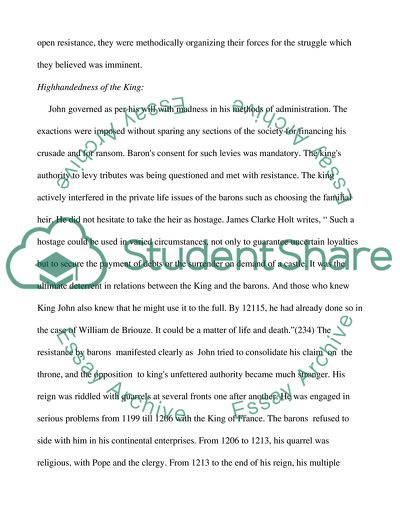Cite this document
(Life in General and the Economic Conditions of John's England Case Study, n.d.)
Life in General and the Economic Conditions of John's England Case Study. Retrieved from https://studentshare.org/history/1736288-assess-the-view-that-the-civil-war-of-1215-was-more-the-result-of-baronial-actions-than-king-johns-actions
Life in General and the Economic Conditions of John's England Case Study. Retrieved from https://studentshare.org/history/1736288-assess-the-view-that-the-civil-war-of-1215-was-more-the-result-of-baronial-actions-than-king-johns-actions
(Life in General and the Economic Conditions of John'S England Case Study)
Life in General and the Economic Conditions of John'S England Case Study. https://studentshare.org/history/1736288-assess-the-view-that-the-civil-war-of-1215-was-more-the-result-of-baronial-actions-than-king-johns-actions.
Life in General and the Economic Conditions of John'S England Case Study. https://studentshare.org/history/1736288-assess-the-view-that-the-civil-war-of-1215-was-more-the-result-of-baronial-actions-than-king-johns-actions.
“Life in General and the Economic Conditions of John'S England Case Study”. https://studentshare.org/history/1736288-assess-the-view-that-the-civil-war-of-1215-was-more-the-result-of-baronial-actions-than-king-johns-actions.


